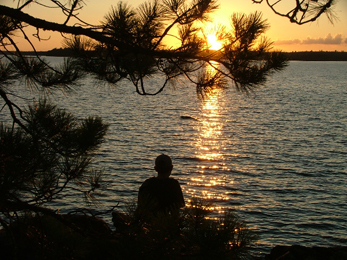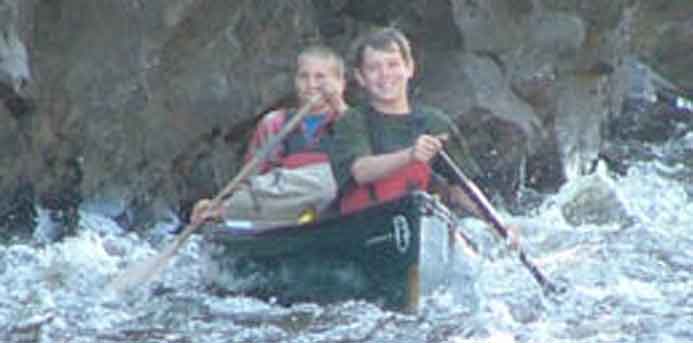Many summer camps offer a “trip” option.
For some, that means one night camping 50 feet away from their cabin. For others, it can mean a two-night canoe trip. Often, the trip is optional and just one of the many electives offered, like riflery and sailing.
Only a small number of summer camps center their curriculum around a wilderness trip.
“There’s nothing like a wilderness experience to develop a child in body and spirit,” explains JR Verkamp, director of Kooch-i-Ching, an all-boys camp in Minnesota. “Through a trip’s adventures and challenges, our youth not only gain a respect and reverence for nature, but themselves as well.”
What’s a wilderness trip?
Some trips involve backpacking or mountaineering, others canoe or kayak trips. Depending on the age and experience level of each group, a trip can last from 5 days up to a month in the wild.
Typically, these camps are based near an expansive wilderness area. For example, Kooch-i-Ching and its sister all-girls camp Ogichi Daa Kwe are situated on the shore of Rainy Lake outside International Falls, Minnesota. The Keewaydin Foundation operates three trip camps, one located on Lake Temagami, Ontario, and two on Lake Dunmore in Salisbury, Vermont. There is also the Kieve Wavus boy and girl camps on Damariscotta Lake in Maine.
While in camp, participants help with trip planning and preparation. They are taught how to paddle, portage a canoe, carry a wigwam, read a map, pitch a tent, start and build a fire. Older campers finesse climbing, and wilderness survival skills that they will put to use on their wilderness adventure—whether hiking across the peaks of Colorado or paddling the waterways of North America.
A reputable trip camp requires its wilderness trip leaders to be certified in wilderness first aid, American Red Cross CPR, whitewater training and leave no trace camping. They should have an evacuation plan, and provide satellite phones to trip leaders.
 Trip takeaways
Trip takeaways
Every summer camp teaches valuable life lessons, but on a wilderness trip, the gains may be greater.
Self-confidence and resilience. “My sons learned to make fires when cold and make meals from what they packed. They learned to manage bad weather and find resilience from within,” says Catherine Yehle, mother of two boys who have attended Kooch-i-Ching for many years. “On these trips, they are literally and figuratively learning to navigate the rapids.”
Teamwork. “It quickly becomes clear that everyone can and has to play a role; there is no bench for the weakest player,” adds Ellen Flight, director of Songadeewin, the Keewaydin Foundation’s all-girls camp.
Strength. There’s nothing like paddling for eight hours a day or traversing a mountain to build strength and endurance, and to prove to yourself and others just how strong you are, physically and emotionally.
Appreciation for the little things. For many kids, it’s the first time they really know hunger, crave a shower and a warm bed. Even better, it’s the first time they experience the magic of the northern lights or a beaver at work.
Peace and quiet. A wilderness trip provides time to think, reflect and imagine. There is no electricity, no technology, only a campfire and tent, your trip mates and mother nature. “Over four weeks a camper will spend approximately 280 hours outdoors, paddling and portaging canoes, experiencing animals and trees in the wild; they will hike, fish, start fires, make and build things and stretch their imagination,” reflects Verkamp. “During the equivalent period, the child left inside will spend 182 hours watching TV, playing video games and surfing the Internet.”
Finding a true wilderness trip camp
One of the best resources is the American Camping Association, the largest national camp association in the US. To become a member, a camp must be audited every three years, and is checked on hundreds of items covering everything from health and safety, transportation, to programs and wilderness tripping.
The ACA’s website offers a detailed search camp engine. Unfortunately, because the wilderness trip feature is loosely defined, you may need to speak to the camp director to help you differentiate between programs.

